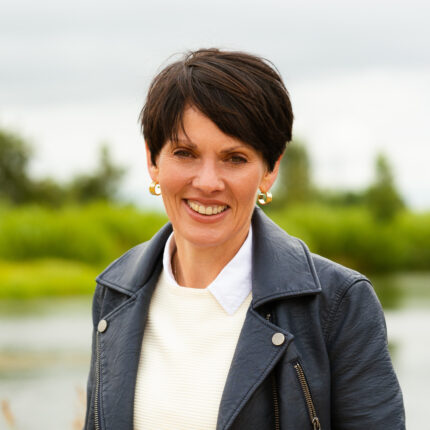The research student experience is well documented – through the wellbeing of doctoral students and early career researchers survey conducted by SMaRteN (with Vitae) in June 2020, Nature”s 5th Survey (2019) survey of PhD students and the Wellcome Trust’s survey of What researchers think about the culture they work in.
The Advance HE run Postgraduate Research Experience Survey (PRES) captures institutional data which support institutional decision making about doctoral provision.
Yet by comparison we know very little about the research supervisor experience. The UK Research Supervision Survey (UKRSS), capturing the views of 3,435 research supervisors, redresses that balance.
Supervisors are intrinsically motivated and want to support researchers
Supervising research is one of the most rewarding parts of my job.
91 per cent of respondents reported enjoying their role in doctoral supervision. 72 per cent are motivated by being able to help engage, motivate and train the next generation of researchers and 82 per cent agreed that “being a supervisor improves the quality of my own research.”
73 per cent agreed with the statement, “It is my role to supervise a person not a project” and 79 per cent confirmed that they felt it was their role to provide pastoral support, be a role model and respond to mental health needs. In addition 92 per cent of respondents value their supervisory role and 90 per cent said they felt valued by their candidates.
They recognise policies and procedures to support the doctoral lifecycle
The majority (95 per cent) of supervisors feel confident that they understand their institution”s procedures for monitoring candidate progress, with 71 per cent of respondents agreeing with the statement that they felt supported to “enact good supervision and to address issues in practice.”
Those who self-classified as having an “academic role” were more likely to agree with these statements, whereas postdoc, professional services and research support staff were less likely to. Reassuring as these figures are for quality assurance, focus group participants suggested they didn’t always work in practice suggesting institution wide policies are treated more as “guidelines” with flexibility applied when needed.
The difficulties begin to arise when supervisors try to implement broad strategies in the context of other responsibilities and the specific and individual needs of candidates.
Time, numbers of supervisees and workload allocation are insufficient
71 per cent of respondents felt that doctoral supervision had become more demanding over the last five years (ie pre-Covid). 34 per cent said “lack of time and high workload” was the biggest challenge in supporting candidates and 40 per cent said that “having more time” is the one thing that would improve their role as a supervisor (a further 15 per cent said “reduced workload”).
Only 52 per cent had a formal workload allocation for research supervision (23 per cent were unsure). Respondents reported confusion about whether their institution has a policy or guidelines about the maximum number of candidates a supervisor can support at any one time.
When asked, 94 per cent of respondents did not want more than six candidates, with the optimal number and preference for three to four candidates (57 per cent). Early career researchers (ECRs) would prefer one to two candidates. There were no significant differences as a result of supervisors being main, secondary or informal supervisors. Some were supervising eight or more candidates on top of teaching, research, civic and administrative responsibilities.
The demands of supervision is impacting on wellbeing
65 per cent felt that supervisory responsibilities had increased due to Covid-19. Not surprisingly, 68 per cent of those who felt it is their role to provide pastoral support felt these responsibilities had increased.
Respondents from Russell Group Universities were more likely to report candidate mental health as a challenge. Online supervision was considered “extremely challenging” by 27 per cent. Only a third (33 per cent) of respondents reported no difficulty in managing their own wellbeing suggesting that two-thirds are feeling the strain and worryingly 61 per cent disagreed that their institution adequately supports them in terms of being a work/life balance role model for their candidates.
This data has implications not just for the wellbeing of individuals but for their ability to contribute to a positive research culture, something the UKCGE will be exploring in more detail.
Supervisor training and support
61 per cent of respondents from specialist institutions reported that their workplace offered regular and mandatory CPD. Russell Group institutions were significantly less likely to report that their workplace offered regular (34 per cent) and mandatory training (21 per cent). There were no major differences between training availability for different subject disciplines.
For those institutions with mandatory training in place, this often concentrated on the supervisory processes involved and how to monitor candidates’ progress, which perhaps explains why confidence levels in this area are high (95 per cent).
By contrast just 33 per cent felt adequately supported in acquiring the interpersonal and intercultural skills needed to support researchers from diverse backgrounds, 49 per cent felt supported in providing pastoral care and 56 per cent said they felt able to respond to mental health and wellbeing issues of candidates.
In the context of widening participation in doctoral education and the Office for Students’ commitment to fix the “broken pipeline” this lack of support and training in supporting diverse backgrounds is of particular concern. Also of concern is that early career researchers who are involved in supervision are less likely to be included in training which is out of kilter with the principles of the Researcher Development Concordat to support career development.
Reward and recognition
Just over half (51 per cent) said that supervisory duties were likely to be recognised by their workplace or institution in their allocation model. Just under half of respondents (47 per cent) said that there was no form of reward system for recognition either via awards or within promotions criteria and only 14 per cent reported that engagement with training is considered in promotions criteria.
Combined, this signals that there is little time, recognition or incentive for supervisors to take part in training and professional development activities. In addition, the focus groups discussions suggest that whilst research supervision carries a certain kudos and is expected, there were very few opportunities to discuss it with peers. By comparison discussion and evaluation of performance in relation to research and teaching were abundant.
Communities of practice and research culture
70 per cent of respondents had taken part in team supervision and 65 per cent agreed that team supervision offers a better experience to candidates. Team supervision and/or having candidates focussed on a similar topic was thought to be beneficial and provided supervisors and supervisees with a peer group to utilise for support and provocation.
Peer review of supervision (as per teaching) was seen as beneficial by focus group participants as was reflecting on and reviewing practice but only 27 per cent reported that this happened “frequently”. 47 per cent (nearly half) said they were rarely or never provided with the time or space to create informal supervisory support groups. 37 per cent suggested they were “rarely” or “never” provided with opportunities to reflect on their own practice (this was even higher for the Russell Group institutions at 39 per cent).
The results suggest that bringing less and more experienced supervisors together would help in sharing of expertise and developing ideas across disciplines. In the context of online learning this is relatively easy and provides opportunities for co-supervisors located at other institutions and/or industry to engage in discussions.
Hats off
The RSS data reveals that supervision is an activity that adds value to the research conducted by the candidate, the supervisor and to the institution. The majority of supervisors take pride in their work and have a genuine commitment in supporting the next generation of researchers.
What the survey results confirm is that supervisors are wearing many hats; that of subject expert; mentor; patron; wellbeing and pastoral care supporter; co-author; careers and skills adviser and all round go-to expert. The pressure is on. The data indicates that currently supervisors are not appropriately supported, recognised or rewarded for the significant time and emotional investment given out of dedication and professionalism.
If the ambitions outlined in the R&D People and Culture Strategy and New Deal for Postgraduates to create an inclusive and supportive research culture is to be achieved then funders and institutions may wish to ruminate on questions such as: the role of supervisors as role models; the optimum number of supervisees; team supervision; mentoring; provision of initial and refresher training, in particular in areas around pastoral support, diversity and careers and consider ways of recognising and rewarding contribution. We hope the findings and subsequent UKCGE events will support these conversations and welcome discussion.















How far did this study consider disciplinary differences? The experience is very different between the sciences where PhD students are often part of a wider research programme helping the supervisor’s work with others and leading to co-authored outputs and arts/humanities/social sciences where the PhD tends to be an individual project that is not making such a direct contribution to the supervisor’s own work.
Colin – thank you for your excellent question. You’re absolutely right, there are clearly differences in supervisory practices in different disciplines. The UK Research Survey captured these differences, and we will be combing through the data to highlight these differences in detail in future work. Some of the key disciplinary differences (e.g. maximum number of candidates per supervisor) are outlined in the first UKRSS report, which will be published later today.
As my work as a doctoral supervisor has continued to develop I have come to regard doctoral supervison (not just PhD supervision – but also Professional Doctorate supervision) as an important and specialised form of pedagogy.
Standing on the side lines watching PhD supervisors struggling with many different issues, some squarely from the candidates previous courses and taught undergrad work, I’m surprised the numbers are so low. Add in the current cost-cutting and reduction in Academic support staff many Universities seem to be engaged in and we should expect major mental health crises as a result. There is much about ‘student’ support and suicide prevention available, but precious little for staff, much the same for counselling services with staff supporting services being cut as a cost saving measure…
John – I share your concern for the wellbeing of those involved in doctoral supervision. We asked several questions about this, some COVID-19 related, and some more general. Reading several of the findings together is sobering: 32% agreed that over the last 12 months ‘concerns over supervision have kept me awake at night’, while 31% agreed that ‘supervising doctoral candidates makes me feel anxious’. You will get more details from the UKRSS report which is due for publication shortly.
These findings resonate with our recent review of the PhD in the social sciences for ESRC. Our report also identifies the impact that the quality of the supervisory relationship can have on the student experience and wellbeing and the need for further training and support for supervisors, to they are able to recognise when students may require support (including with non-academic issues) and are able to signpost them to the appropriate services within their institution.